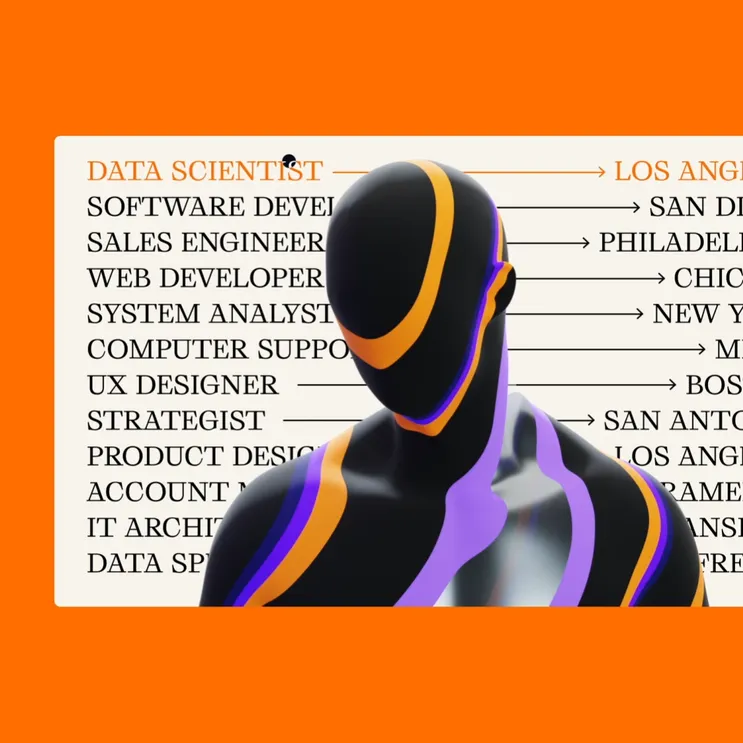Design
7 min read
Serious About Smiles: The Business Behind Jester Brands
Jester or Joker branding is a playful marketing strategy that taps into our collective desire for humour, levity, and a break from the norm. These brands present themselves as the whimsical characters of the market, offering a light-hearted touch in an otherwise serious landscape. They thrive by introducing humour, surprise, and spontaneity, constructing a world where laughter and fun are at the forefront, and predictability takes a backseat.
The Appeal of Jester Brands
Central to jester brands is their ability to delight and entertain. Amid a marketplace replete with straightforward and solemn narratives, jester brands infuse an element of humour and play, drawing consumers who crave a chuckle or an unexpected twist in their purchasing journey. They craft an aura of irreverence and mirth, deeply resonating with people’s need for occasional escapism and light-heartedness.
Jester brands are the antithesis of rigidity. Their playful and often cheeky character draws in individuals who appreciate humour, spontaneity, and a dash of unpredictability, forging a brand connection that is both delightful and memorable.
Historical
The use of humour in branding and advertising isn’t a recent phenomenon. Historically, brands have employed humour as a means to captivate audiences and distinguish themselves from the competition. From radio jingles of the 1920s to television adverts in the 1960s and beyond, humour has been a tool to resonate with the zeitgeist of the times and humanise brands. The essence of humour, whether it’s satire, slapstick, or wit, reflects societal values, changes, and shared experiences, allowing brands to connect with consumers in a meaningful and relatable manner.
Examples of Jester Brands
Ben & Jerry’s: This iconic ice cream brand, with its quirky flavour names and humorous approach to marketing, exemplifies the jester brand archetype, making each scoop an adventure.
Old Spice: Known for their offbeat commercials and unexpected humour, Old Spice transforms the mundane act of personal care into an entertaining experience, fitting the jester mold perfectly.
Skittles: With the tagline “Taste the Rainbow” and commercials that delve into the absurd, Skittles delivers a colourful and humorous brand persona, bringing the jester’s jest into the candy aisle.
Geico: Their memorable and often hilarious ad campaigns, featuring everything from cavemen to talking geckos, have cemented Geico’s place as a jester brand in the insurance world.
Cards Against Humanity: This party game, with its tagline “A party game for horrible people”, thrives on humour, irreverence, and pushing boundaries, embodying the essence of the jester archetype.
Doritos: Doritos, the well-known tortilla chip brand, has made a mark with its zany and often unpredictable commercials. Whether it’s a goat screaming for more chips or a playful take on time travel, Doritos ensures that every bite is accompanied by a chuckle. Their bold flavours are mirrored by their bold sense of humour, making them a standout jester brand.
Burger King: With campaigns like the “Whopper Detour” (where they cheekily encouraged customers to go near a McDonald’s to unlock a deal for a 1-cent Whopper) and their playful jabs at competitors, Burger King uses humour and wit to promote its products. Their tongue-in-cheek approach to advertising and social media often brings a playful rivalry to the fast-food industry.
Poo-Pourri: This brand turned a typically taboo topic – bathroom odours – into a source of humour and light-heartedness. With product names like “Royal Flush” and “Trap-A-Crap”, and commercials featuring a posh British woman discussing the unmentionables of restroom visits, Poo-Pourri leans fully into the jester archetype, making the unpleasant a source of fun and giggles.
The Potential Pitfalls
Jester branding, while engaging, is not without its challenges. Humour is deeply rooted in cultural nuances, making it subjective and varied across different societies. What evokes laughter in one culture might be met with puzzlement or even offence in another. For global brands employing joker branding, understanding the cultural context is paramount. Local idioms, societal norms, and historical references play a crucial role in shaping humour. Brands aiming for a global footprint must tread carefully, ensuring their content is localised and resonates with the target audience without inadvertently causing cultural misunderstandings or missteps.
Furthermore, over-reliance on humour may lead some consumers to question the brand’s seriousness or credibility. It’s vital for jester brands to strike a balance between levity and reliability.
For instance, a brand that always appears as the jester might struggle in situations demanding seriousness or empathy. Such situations call for careful brand management to ensure that while humour remains their USP, they can also be taken seriously when required.
A Case Study in Reputation Damage
Pepsi faced backlash for an ad featuring Kendall Jenner, wherein she hands a Pepsi can to a police officer during a protest, seemingly solving the tension. While perhaps intended as a light-hearted take on unity, many perceived it as tone-deaf and making light of serious social issues. This exemplifies the risks jester brands face when humour is misplaced or perceived as insensitive.
Jester branding presents a refreshing approach for businesses desiring to make a memorable and fun impact on their audience. While there are inherent challenges, when executed adeptly, jester branding can create a distinctive and lasting brand image.
As consumers increasingly seek brands that can offer joy and a break from the mundane, the jesters of today might very well become the brand leaders of tomorrow. In a world that often feels heavy, we can anticipate a continued appreciation for brands that can bring a smile to our faces, redefining the boundaries of branding and engagement.
























